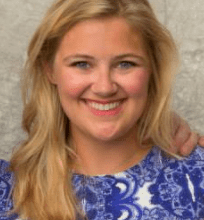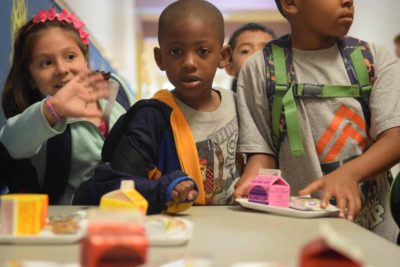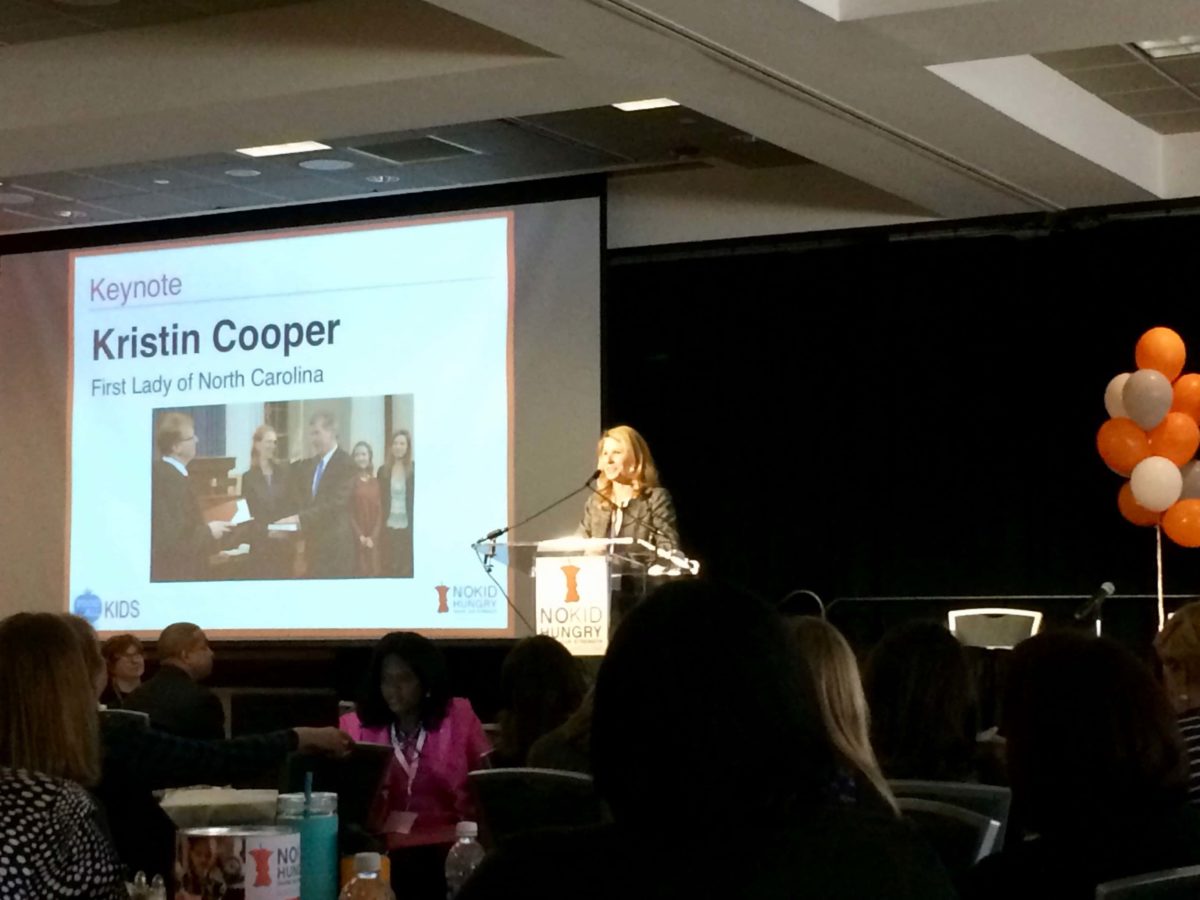
Annika Conrad is one of the talented team members working on the Reach NC Voices project. Please share your thoughts on the issues we are exploring through the EdNC chatbot at the bottom of the article. Your opinions will be amplified throughout North Carolina.
First Lady Kristin Cooper spoke on February 22nd at the 2017 No Child Hunger Leaders Conference at the Friday Center in Chapel Hill. No Kid Hungry NC brought together educators, nutritionists, advocates, and leaders across the state to discuss the issues facing child hunger in North Carolina.
Nationally, 13 million kids go hungry, with one in five kids unaware where their next meal will come from. Cooper told personal stories of her work with foster children which opened her eyes to the challenges of childhood hunger.
“A problem I encountered with foster children is that the subsidy they receive simply doesn’t allow them to buy enough food to eat. We would have to partner with local organizations and food pantries.”
She further emphasized the importance of supporting hungry children in the state and those involved in ending hunger. “If you really want to make this country strong again there’s no better way to do that than making our kids strong. We are ready to assist you,” said Cooper.
Dr. Lynn Harvey, School Nutrition Services Chief of the NC Department of Instruction, warned the audience of potential changes to school nutrition funding from the current allocation system to block grants. “If the school nutrition programs were block granted, it would decimate the national security network we have for children. In North Carolina, nearly 30 percent of students who come to public school don’t know where their next meal may come from.”
Harvey highlighted the block grant pilots in 2008 and 2016 in North Carolina to expose the weaknesses of that funding plan. The challenges included not being able to accommodate for a sudden increase of students eligible for school lunch due to changes in their life from the economic recession or natural disasters such as Hurricane Matthew.
“We need to continue to be resilient and loudly let decision makers know that we cannot and will not accept block granting.”
The No Kid Hungry event also highlighted accomplishments from school districts, nonprofits, and other organizations across the state.
Donna Farmer, the School Nutrition Supervisor of Buncombe County, shared how she increased school breakfast participation rates from 47 percent to 99 percent by having students eat breakfast in the classroom.
Aisha Howard, principal of Oak Grove Elementary School in Durham, echoed the benefit of breakfast in the classroom, stating, “Teachers are embracing it because they can start instruction on time…we know hungry kids can’t learn.”
Thyais Maxwell, Principal of Hampton Elementary University Partnership Magnet in Guilford County, shared how her school implemented a third meal, Super Snacks, because she knows that for many students, school is the only place they get a meal.
“We do it in the last 20 minutes of the school day so teachers can do read aloud and give extra support to students who need it. Kids get to have a family meal conversation, especially because I know many of them don’t have dining tables at home. Super Snacks met a lot of the social and emotional needs and also fed them.”
The event was not without local North Carolina celebrities.
Michael Bonner, the second grade teacher from South Greenville Elementary who appeared on the Ellen Show for his fun innovative ways to teach his students, highlighted the underlying theme in the room.
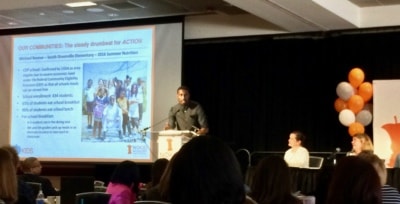
Bonner drew applause when he declared, “Amazing things can happen when innovative minds are in the same room and start bouncing ideas off each other.”
Gerald Owens, WRAL News Anchor, announced the winners of the 2016 Breakfast Challenge to elementary, middle, and high schools who exceeded breakfast participation rates.
Pasquotank Elementary School and J.C. Sawyer Elementary School, both under the leadership of Michael Thompson, the School Nutrition Director at Elizabeth City-Pasquotank Public Schools, saw a 57 percent and 52 percent participation increase in the past year respectively.
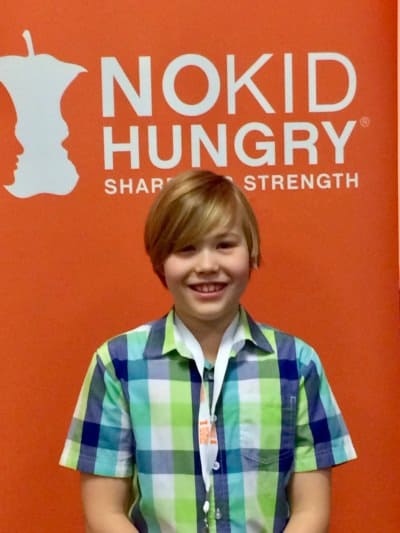
William Winslow, a fifth grader at A.B. Combs Elementary, who is an already accomplished food ambassador, was celebrated for his work. In his first year as an ambassador, he raised $305 and donated over 1,400 lbs of food to help end childhood hunger.
“One in four kids in North Carolina go hungry. I’m in a class of 26, and I just couldn’t stand the thought of 6 or 7 kids not having enough food.”
